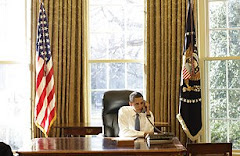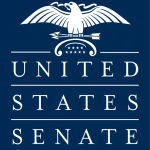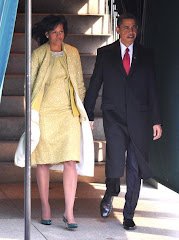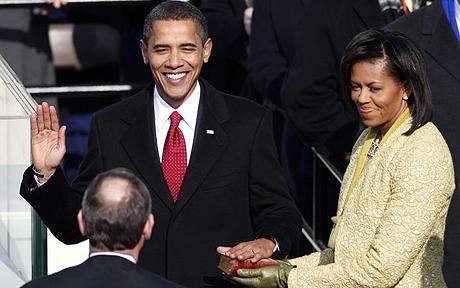My Plan For Bad Bank Assets
By TIMOTHY GEITHNER
THE WALL STREET JOURNALThe American economy and much of the world now face extraordinary challenges, and confronting these challenges will continue to require extraordinary actions.
No crisis like this has a simple or single cause, but as a nation we borrowed too much and let our financial system take on irresponsible levels of risk. Those decisions have caused enormous suffering, and much of the damage has fallen on ordinary Americans and small-business owners who were careful and responsible. This is fundamentally unfair, and Americans are justifiably angry and frustrated.
The depth of public anger and the gravity of this crisis require that every policy we take be held to the most serious test: whether it gets our financial system back to the business of providing credit to working families and viable businesses, and helps prevent future crises.
Over the past six weeks we have put in place a series of financial initiatives, alongside the Recovery and Reinvestment Program, to help lay the financial foundation for economic recovery. We launched a broad program to stabilize the housing market by encouraging lower mortgage rates and making it easier for millions to refinance and avoid foreclosure. We established a new capital program to provide banks with a safeguard against a deeper recession. By providing confidence that banks will have a sufficient level of capital even if the outlook is worse than expected, more credit will be available to the economy at lower interest rates today -- making it less likely that the more negative economy they fear will take place.
We started a major new lending program with the Federal Reserve targeted at the securitization markets critical for consumer and small business lending. Last week, we announced additional actions to support lending to small businesses by directly purchasing securities backed by Small Business Administration loans.
Together, actions over the last several months by the Federal Reserve and these initiatives by this administration are already starting to make a difference. They have helped to bring mortgage interest rates near historic lows. Just this month, we saw a 30% increase in refinancing of mortgages, which means millions of Americans are taking advantage of the lower rates. This is good for homeowners, and it's good for the economy. The new joint lending program with the Federal Reserve led to almost $9 billion of new securitizations last week, more than in the last four months combined.
However, the financial system as a whole is still working against recovery. Many banks, still burdened by bad lending decisions, are holding back on providing credit. Market prices for many assets held by financial institutions -- so-called legacy assets -- are either uncertain or depressed. With these pressures at work on bank balance sheets, credit remains a scarce commodity, and credit that is available carries a high cost for borrowers.
Today, we are announcing another critical piece of our plan to increase the flow of credit and expand liquidity. Our new Public-Private Investment Program will set up funds to provide a market for the legacy loans and securities that currently burden the financial system.
The Public-Private Investment Program will purchase real-estate related loans from banks and securities from the broader markets. Banks will have the ability to sell pools of loans to dedicated funds, and investors will compete to have the ability to participate in those funds and take advantage of the financing provided by the government.
The funds established under this program will have three essential design features. First, they will use government resources in the form of capital from the Treasury, and financing from the FDIC and Federal Reserve, to mobilize capital from private investors. Second, the Public-Private Investment Program will ensure that private-sector participants share the risks alongside the taxpayer, and that the taxpayer shares in the profits from these investments. These funds will be open to investors of all types, such as pension funds, so that a broad range of Americans can participate.
Third, private-sector purchasers will establish the value of the loans and securities purchased under the program, which will protect the government from overpaying for these assets.
The new Public-Private Investment Program will initially provide financing for $500 billion with the potential to expand up to $1 trillion over time, which is a substantial share of real-estate related assets originated before the recession that are now clogging our financial system. Over time, by providing a market for these assets that does not now exist, this program will help improve asset values, increase lending capacity by banks, and reduce uncertainty about the scale of losses on bank balance sheets. The ability to sell assets to this fund will make it easier for banks to raise private capital, which will accelerate their ability to replace the capital investments provided by the Treasury.
This program to address legacy loans and securities is part of an overall strategy to resolve the crisis as quickly and effectively as possible at least cost to the taxpayer. The Public-Private Investment Program is better for the taxpayer than having the government alone directly purchase the assets from banks that are still operating and assume a larger share of the losses. Our approach shares risk with the private sector, efficiently leverages taxpayer dollars, and deploys private-sector competition to determine market prices for currently illiquid assets. Simply hoping for banks to work these assets off over time risks prolonging the crisis in a repeat of the Japanese experience.
Moving forward, we as a nation must work together to strike the right balance between our need to promote the public trust and using taxpayer money prudently to strengthen the financial system, while also ensuring the trust of those market participants who we need to do their part to get credit flowing to working families and businesses -- large and small -- across this nation.
This requires those in the private sector to remember that government assistance is a privilege, not a right. When financial institutions come to us for direct financial assistance, our government has a responsibility to ensure these funds are deployed to expand the flow of credit to the economy, not to enrich executives or shareholders. These provisions need to be designed and applied in a way that does not deter the participation by the private sector in generally available programs to stabilize the housing markets, jump-start the credit markets, and rid banks of legacy assets.
We cannot solve this crisis without making it possible for investors to take risks. While this crisis was caused by banks taking too much risk, the danger now is that they will take too little. In working with Congress to put in place strong conditions to prevent misuse of taxpayer assistance, we need to be very careful not to discourage those investments the economy needs to recover from recession. The rule of law gives responsible entrepreneurs and investors the confidence to invest and create jobs in our nation. Our nation's commitment to pursue economic policies that promote confidence and stability dates back to the very first secretary of the Treasury, Alexander Hamilton, who first made it clear that when our government gives its word we mean it.
For all the challenges we face, we still have a diverse and resilient financial system. The process of repair will take time, and progress will be uneven, with periods of stress and fragility. But these policies will work. We have already seen that where our government has provided support and financing, credit is more available at lower costs.
But as we fight the current crisis, we must also start the process of ensuring a crisis like this never happens again. As President Obama has said, we can no longer sustain 21st century markets with 20th century regulations. Our nation deserves better choices than, on one hand, accepting the catastrophic damage caused by a failure like Lehman Brothers, or on the other hand being forced to pour billions of taxpayer dollars into an institution like AIG to protect the economy against that scale of damage. The lack of an appropriate and modern regulatory regime and resolution authority helped cause this crisis, and it will continue to constrain our capacity to address future crises until we put in place fundamental reforms.
Our goal must be a stronger system that can provide the credit necessary for recovery, and that also ensures that we never find ourselves in this type of financial crisis again. We are moving quickly to achieve those goals, and we will keep at it until we have done so.
Mr. Geithner is the U.S. Treasury secretary.
![[Commentary]](http://s.wsj.net/public/resources/images/OB-DI712_oj_gei_E_20090322195013.jpg) AP
AP![[Commentary]](http://s.wsj.net/public/resources/images/ED-AJ204_geithn_DV_20090322205523.jpg) Getty Images
Getty Images




















































